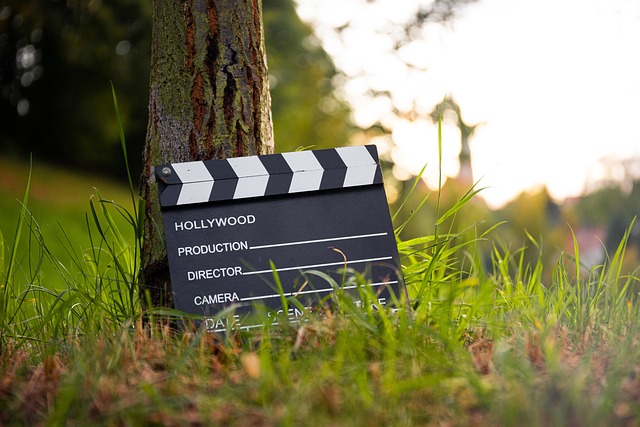Title: Slow Dating: The Mindful Revolution in Modern Romance
Introduction: In an era of swipe-right culture and instant gratification, a counter-movement is quietly gaining momentum. Slow dating, a mindful approach to forming romantic connections, is reshaping how people navigate the complex world of modern relationships. This thoughtful revolution prioritizes quality over quantity, encouraging individuals to take their time and be more intentional in their pursuit of love. Read below to explore how slow dating is transforming the landscape of romance in today's fast-paced society.
The philosophy behind slow dating isn’t entirely new. It harkens back to traditional courtship practices, where couples took time to develop a strong foundation before committing to a serious relationship. However, it has been adapted for the modern era, incorporating elements of mindfulness and self-reflection that resonate with today’s more self-aware generation.
The Mechanics of Slow Dating
Slow dating involves a deliberate approach to forming romantic connections. Instead of going on numerous dates with multiple people, individuals focus on getting to know one person at a time. This often involves longer, more meaningful conversations and shared experiences that go beyond the typical coffee date or drinks at a bar.
Proponents of slow dating often limit their use of dating apps, preferring to meet potential partners through mutual friends, shared interests, or community events. When they do use dating apps, they’re more selective about who they match with and engage in longer conversations before meeting in person.
The pace of slow dating varies from person to person, but generally involves taking weeks or even months to progress from initial contact to a committed relationship. This allows time for both parties to assess compatibility, build trust, and develop a genuine connection without the pressure of physical intimacy or exclusivity.
The Psychology Behind Slow Dating
Psychologists and relationship experts have identified several benefits to the slow dating approach. By taking time to truly get to know someone, individuals can make more informed decisions about compatibility and long-term potential. This reduces the likelihood of entering into relationships based purely on physical attraction or superficial commonalities.
Slow dating also allows for the development of emotional intimacy before physical intimacy, which can lead to stronger, more lasting bonds. It gives individuals the opportunity to process their feelings, set healthy boundaries, and communicate their needs and expectations clearly.
Moreover, the mindful nature of slow dating encourages self-reflection and personal growth. As people take time between dates and relationships, they have more opportunity to work on themselves, pursue their own interests, and clarify what they truly want in a partner.
The Impact on Modern Relationships
The slow dating movement is having a noticeable impact on how people approach relationships in the 21st century. Many who embrace this approach report feeling more satisfied with their dating experiences and less anxious about finding a partner. They describe a sense of empowerment in taking control of their romantic lives and refusing to settle for connections that don’t align with their values and goals.
Interestingly, slow dating has been shown to lead to more diverse relationships. By taking time to look beyond surface-level attributes, people are more likely to form connections with individuals they might have overlooked in a fast-paced dating environment. This has the potential to break down social barriers and foster more inclusive communities.
The slow dating philosophy is also influencing the development of new dating apps and services. Some platforms now offer features that limit the number of matches a user can make in a day, encouraging more meaningful interactions. Others focus on facilitating in-person meetups based on shared interests, rather than relying solely on profile photos and brief bios.
Challenges and Criticisms
While slow dating has gained many advocates, it’s not without its challenges and critics. In a world that often demands instant results, some find the pace of slow dating frustrating or impractical. There’s also the risk of becoming too invested in a single potential partner before truly knowing if they’re a good match.
Critics argue that slow dating may not be feasible for everyone, particularly those in smaller communities or with limited free time. There’s also concern that it could reinforce traditional gender roles or expectations about courtship that some view as outdated.
Despite these challenges, proponents of slow dating argue that the benefits far outweigh the drawbacks. They believe that by investing time and energy into building meaningful connections, individuals are more likely to find fulfilling, lasting relationships that contribute to their overall wellbeing and happiness.
The Future of Slow Dating
As society continues to grapple with the complexities of modern romance, slow dating is likely to play an increasingly significant role. Its emphasis on mindfulness and intentionality aligns well with broader cultural trends towards wellness, self-care, and authentic living.
While it may not replace traditional dating methods entirely, slow dating offers a valuable alternative for those seeking deeper connections in an often superficial dating landscape. As more people experience the benefits of this approach, it has the potential to reshape societal norms around courtship and relationships.
Ultimately, the slow dating movement reminds us that in the pursuit of love and companionship, sometimes the journey is just as important as the destination. By taking the time to truly know ourselves and others, we open up the possibility of forming more meaningful, satisfying relationships that can withstand the tests of time.





